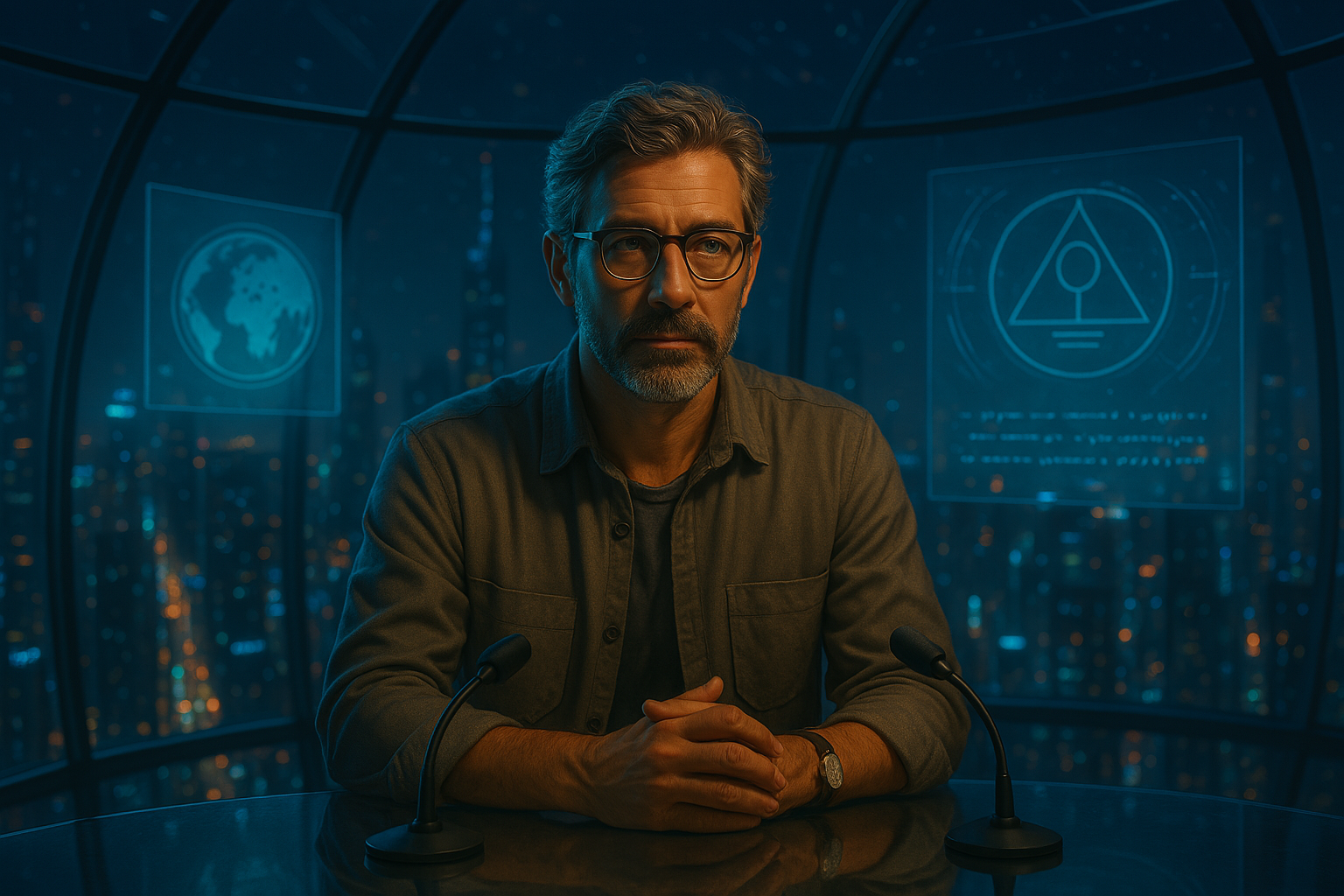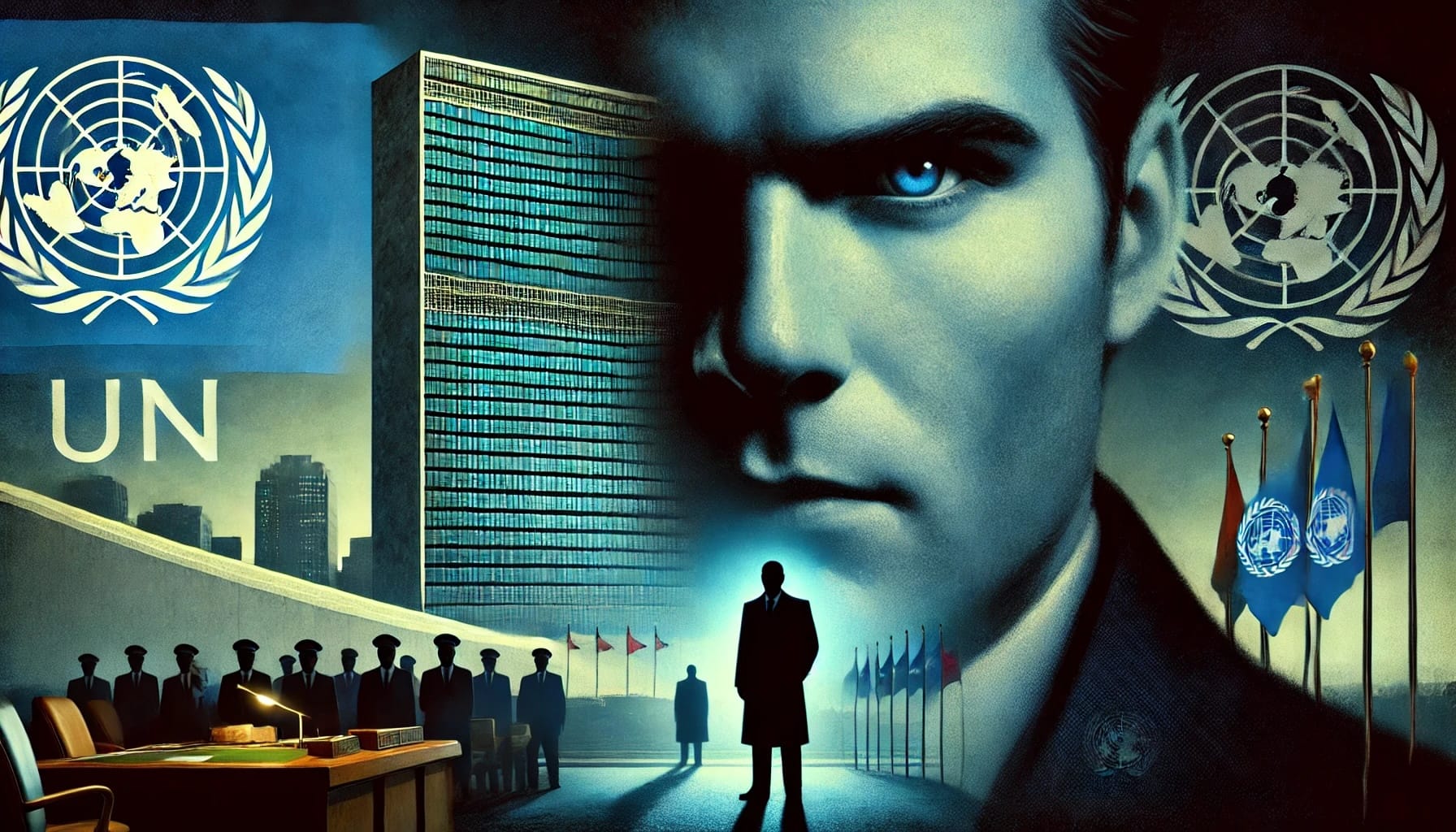FOX NEWS EXCLUSIVE: "The Author Who Predicted the UN's Fall From Grace"
Did this Fox News interview with controversial author Victor Modström actually occur in our timeline? Does it exist as electromagnetic signals bouncing through cable networks and digital archives, or merely as quantum possibilities collapsed into this particular reality by your observation? In the multiverse theory of quantum physics, every possible interview exists simultaneously—one where Modström appears on CNN defending international institutions, another where he debates religious leaders on Al Jazeera, and this one, where he sits across from Bret Baier discussing global conspiracies and institutional power.
Perhaps this transcript has leaked from a neighboring universe where fiction and reality have different boundaries than our own. Or perhaps it's simply an exploration of how the same story changes depending on who's telling it and who's listening. After all, isn't truth itself a superposition of perspectives, collapsing differently depending on the observer? As Modström himself might say, "Reality is whatever narrative gains enough observers to collapse the wave function of possibility."
Whether this interview happened in our universe or another matters less than what it reveals about the institutions that shape our lives. Read on, and decide for yourself which reality you prefer to inhabit.
Special Report with Bret Baier, aired April 11, 2025

BRET BAIER: Tonight, we bring you an exclusive interview with Victor Modström, the controversial author behind "The 13th Apostle and the UN" - a novel that's been making waves with its depiction of religious persecution and deep state maneuvers within the United Nations. Many are calling it prophetic in light of President Trump's recent showdown with the UN leadership. Mr. Modström, welcome to Special Report.
VICTOR MODSTRÖM: Thank you for having me, Bret.
BAIER: Let's start with the timing. Your novel's latest chapters describe a shadowy effort called "Operation Apostle" to influence international organizations through religious controversies. Then, just last month, President Trump unveils evidence of UN officials suppressing religious freedom initiatives. Coincidence?
MODSTRÖM: (smiles) I'd like to say I have prophetic abilities, but I'm just observant. The signs have been there for those willing to see them. What we're witnessing is the culmination of a long-standing tension between global bureaucracies that lean secular and the deeply held religious convictions of billions of people worldwide.
BAIER: Your protagonist, Darren Melvik, finds himself targeted after posting about burning churches. Critics say you're justifying attacks on religious institutions.
MODSTRÖM: That's a fundamental misreading of the work. What the novel explores is how power structures - both secular and religious - can manipulate genuine grievances for control. Darren's post was provocative, yes, but it became weaponized by forces that had nothing to do with protecting faith and everything to do with institutional power.
BAIER: Much like how the Biden administration weaponized government agencies against conservative voices?
MODSTRÖM: There are parallels. When institutions forget they exist to serve people rather than control them, abuse follows. We've seen it in governments, in religious hierarchies, and certainly in international organizations that lack democratic accountability.
BAIER: In your latest chapters, you introduce a Soviet research facility called "Institute 410" that studied religious imagery and shared hallucinations. Are you suggesting there's some kind of mind control operation targeting people of faith?
MODSTRÖM: I'm exploring how propaganda techniques evolved from the Cold War era into our digital age. The Soviets invested heavily in psychological research - that's historical fact. What's fascinating is how those methodologies have been repurposed in our hyperconnected world, where narratives can be shaped and amplified instantly.
BAIER: President Trump has called the UN a "nest of globalists undermining American sovereignty and Christian values." Your novel seems to support that view.
MODSTRÖM: My novel depicts the UN as a flawed human institution - capable of great good but also vulnerable to corruption and manipulation. What's interesting is that my protagonist, despite uncovering conspiracy, still believes in the ideal of international cooperation. He's fighting for the organization's soul, not its destruction.
BAIER: Yet your character discovers his entire controversy was engineered to justify greater religious "oversight" of communications. This echoes concerns about free speech being suppressed in the name of preventing "religious insensitivity."
MODSTRÖM: Exactly. The novel explores how legitimate concerns about respect for faith can be exploited to control discourse. We're seeing that play out now with AI content moderation, aren't we? Algorithms flagging legitimate religious discussion as "problematic" while actual extremism flourishes in darker corners.
BAIER: Speaking of AI, your novel features characters receiving mysterious messages and experiencing shared dreams. With advancements in neural interfaces and concerns about AI-generated content influencing beliefs, do you worry we're heading toward something like what you describe?
MODSTRÖM: (leans forward) What should concern us is how technology amplifies old techniques. The Soviet researchers in my novel studied how religious imagery affects brain patterns. Today, algorithms track exactly what content provokes emotional responses and serves it to millions simultaneously. The methods have evolved, but the goal remains the same: influence at scale.
BAIER: Your protagonist discovers a network of resisters within the UN - what you call "institutional memory." With the Trump administration's renewed scrutiny of international organizations, do you believe there really are patriots within these systems fighting against globalist agendas?
MODSTRÖM: Every institution contains people who remember its founding purpose. In the novel, these aren't partisan warriors - they're principled professionals who believe in neutrality and fairness. The tragedy is when they're sidelined by ideologues from any direction.
BAIER: The latest chapters show Darren traveling to Latvia to uncover Soviet-era research. Why Latvia specifically?
MODSTRÖM: Latvia represents the intersection of East and West, of Soviet legacy and European identity. It's a nation that experienced both religious persecution under communism and now navigates the complex waters of European secularism. That tension creates fertile ground for the themes I'm exploring.
BAIER: Final question. Your novel has been called dangerous by some UN officials, with suggestions it could inspire attacks on international institutions. How do you respond?
MODSTRÖM: (smiles) Fiction has always been feared by those in power because it asks "what if?" My novel doesn't advocate violence - it advocates vigilance. If asking questions about unaccountable power is dangerous, then perhaps the danger doesn't lie with the questioner.
BAIER: Victor Modström, author of "The 13th Apostle and the UN." Thank you for joining us.
MODSTRÖM: Thank you, Bret.
BAIER: After the break, we'll examine how the President's new Executive Order on International Religious Freedom could reshape America's relationship with the United Nations. Stay with us.
Producers note: This interview has sparked significant online engagement, with #OperationApostle trending nationally. The White House has declined to comment on whether the President's recent policy decisions were influenced by Modström's work, but several administration officials have been spotted with copies of the novel. Meanwhile, UN Secretary-General Antonio Guterres has dismissed the book as "irresponsible fiction that undermines vital international cooperation at a critical time."
